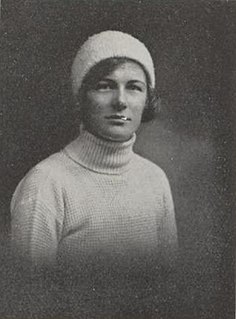
The Elfstedentocht is a long-distance tour skating event on natural ice, almost 200 kilometres (120 mi) long, which is held both as a speed skating competition and a leisure tour. It is held in the province of Friesland in the north of the Netherlands, leading past all eleven historical cities of the province. The tour is held at most once a year, only when the natural ice along the entire course is at least 15 centimetres (6 in) thick; sometimes on consecutive years, other times with gaps that may exceed 20 years. When the ice is suitable, the tour is announced and starts within 48 hours.

De Fryske Marren is a municipality of Friesland in the northern Netherlands. It was established 1 January 2014 and consists of the former municipalities of Gaasterlân-Sleat, Lemsterland, Skarsterlân and parts of Boarnsterhim, all four of which were dissolved on the same day. The municipality is located in the province of Friesland, in the north of the Netherlands, and has a population of 51,430 and a combined area of 559.93 km2 (216.19 sq mi).

Sjoerdje Venema-Faber, was a Dutch long-distance speed skater. She was the only woman who reached the finish in the 1940 Elfstedentocht, the most prestigious speed skating race and tour on natural ice in the Netherlands over 200 km. Over the years she finished the tour five times.

Fokje van der Velde was a Dutch kortebaan speed skater in the 1930s and 1940s. She won a total of around 80 prizes. She won the 1942 Dutch national championships kortebaanschaatsen.

Janna de Boer-van der Meulen was a Dutch kortebaanschaatsen speed skater.

Griet Hoogstins-Bijlsma was a Dutch kortebaanschaatsen speed skater.

Jeltje Gerrits van der Werf was a Dutch kortebaanschaatsen speed skater. She skated her first race in 1870 in Dokkum. She won her first race in 1871 in Oudkerk. A week later, she won individually in Oudkerk, and again in Leeuwarden. She won several more races. At the age of 24, she was called the fastest woman. In that period she married. However, twenty weeks after the marriage, her husband died. As a widow, she won over a thousand gulden in prize money and some prestigious races.
Makke Lambers-Groen also written as Martha Groen was a Dutch female kortebaanschaatsen speed skater.

Jitske Altena-de Boer also written as Jitsche de Boer was a Dutch female kortebaanschaatsen speed skater.
Klaasje Hofstee was a Dutch female kortebaanschaatsen speed skater.

Trijntje van Zinderen-Hemminga was a Dutch kortebaanschaatsen speed skater. Prizes she won consisted of money prizes, art pieces and medals. She won three times the bronze medal at the first three Dutch National Kortebaan Speed Skating Championships: in the winter of 1932–33, 1933–34 and 1938–39.
Trijntje Terpstra was a Dutch female kortebaan speed skater.
Houkje van der Meer was a Dutch female kortebaan speed skater.

Lutske Wester was a Dutch kortebaan speed skater.

Gelske Venema-Brouwer was a Dutch female kortebaanschaatsen speed skater. During her 28-year speed skating career she won a total of 77 prizes and 20 premiums.

Annie van der Steeg-Van der Meer was a Dutch kortebaan speed skater, with her best results in the 1950s. During her career she won a total of 75 prizes. She became twice Frisian champion and won the silver medal at the national championships.

Tietje Spannenburg-Pagels was a Dutch kortebaan speed skater. Spannenburg-Pagels was born in Hallum. She later lived in Wommels.

Annie de Jong-Zondervan was a Dutch female athlete, specialized in long jump and hurdles, and kortebaan speed skater from Huizum.

Lien van der Mei sometimes written as Lina van der Mei was a Dutch kortebaan speed skater in the 1940s and 1950s from Langezwaag. She was in her era one of the best known women’s kortebaan speed skaters.

Durkje Huitema was a Dutch female kortebaan speed skater.
















